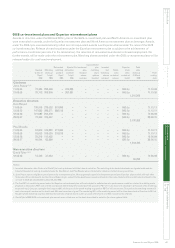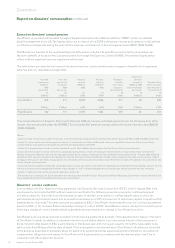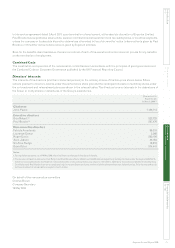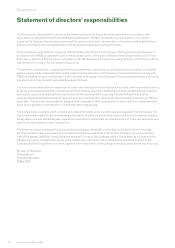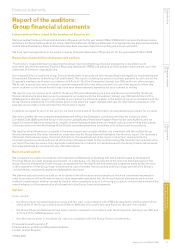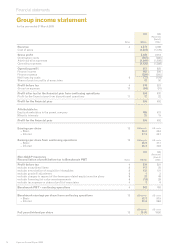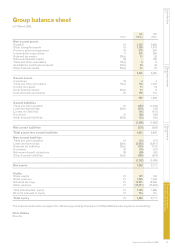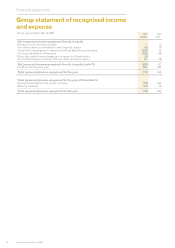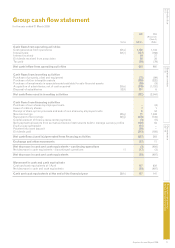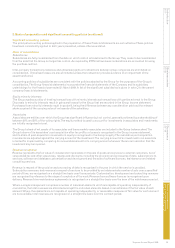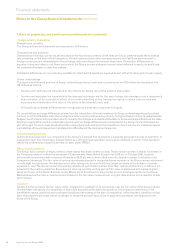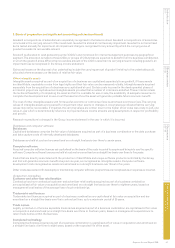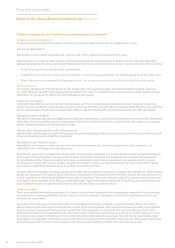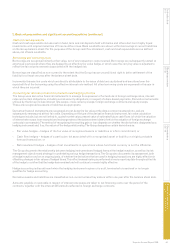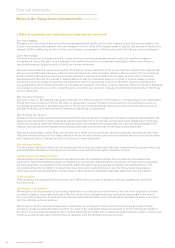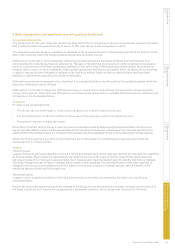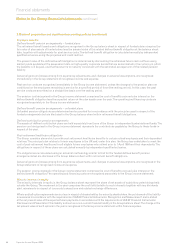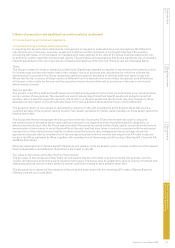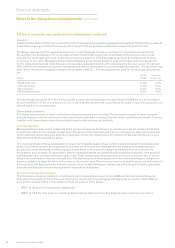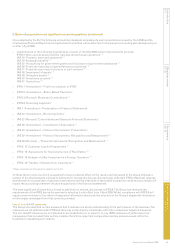Experian 2009 Annual Report Download - page 81
Download and view the complete annual report
Please find page 81 of the 2009 Experian annual report below. You can navigate through the pages in the report by either clicking on the pages listed below, or by using the keyword search tool below to find specific information within the annual report.
79Experian Annual Report 2009
Introduction
2 – 7
Business review
8 – 43
Governance
44 – 72
Financial statements
Group nancial statements
2. Basis of preparation and signicant accounting policies (continued)
Signicant accounting policies
The principal accounting policies applied in the preparation of these nancial statements are set out below. These policies
have been consistently applied to both years presented, unless otherwise stated.
Basis of consolidation
Subsidiaries
Subsidiaries are fully consolidated from the date on which control is transferred to the Group. They cease to be consolidated
from the date that the Group no longer has control. As required by IFRS 3 all business combinations are accounted for using
the purchase method.
Inter-company transactions, balances and unrealised gains on transactions between group companies are eliminated on
consolidation. Unrealised losses are also eliminated unless the transaction provides evidence of an impairment of the
asset transferred.
Accounting policies of subsidiaries are consistent with the policies adopted by the Group for the purposes of the Group’s
consolidation. The Group nancial statements incorporate the nancial statements of the Company and its subsidiary
undertakings for the nancial year ended 31 March 2009. A list of the signicant subsidiaries is given in note Q to the parent
company nancial statements.
Equity minority interests
The Group applies a policy of treating transactions with minority interests as transactions with parties external to the Group.
Disposals to minority interests result in gains and losses for the Group that are recorded in the Group income statement.
Purchases from minority interests result in goodwill, being the difference between any consideration paid and the relevant
share acquired of the carrying value of net assets of the subsidiary.
Associates
Associates are entities over which the Group has signicant inuence but not control, generally achieved by a shareholding of
between 20% and 50% of the voting rights. The equity method is used to account for investments in associates and investments
are initially recognised at cost.
The Group’s share of net assets of its associates and loans made to associates are included in the Group balance sheet. The
Group’s share of its associates’ post-acquisition after tax prots or losses is recognised in the Group income statement,
and its share of post-acquisition movements in equity is recognised in the Group’s equity. The cumulative post-acquisition
movements are adjusted against the carrying amount of the investment. The carrying amount of an investment in an associate
is tested for impairment by comparing its recoverable amount to its carrying amount whenever there is an indication that the
investment may be impaired.
Revenue recognition
Revenue represents the fair value of consideration receivable on the sale of goods and services to external customers, net of
value added tax and other sales taxes, rebates and discounts, including the provision and processing of data, subscriptions to
services, software and database customisation and development and the sale of software licences, maintenance and related
consulting services.
Revenue in respect of the provision and processing of data is recognised in the year in which the service is provided.
Subscription revenues, and revenues in respect of services to be provided by an indeterminate number of acts over a specied
period of time, are recognised on a straight line basis over those periods. Customisation, development and consulting revenues
are recognised by reference to the stage of completion of the work. Revenue from software licences is recognised upon
delivery. Revenue from maintenance agreements is recognised on a straight line basis over the term of the maintenance period.
Where a single arrangement comprises a number of individual elements which are capable of operating independently of
one another, the total revenues are allocated amongst the individual elements based on an estimate of the fair value of each
element. Where the elements are not capable of operating independently, or reasonable measures of fair value for each element
are not available, total revenues are recognised on a straight line basis over the contract period.


